
Program book
Welcome to Sunday in the Park with Lyric, the annual celebration of the opening of the cultural season in Chicago. Tonight's performance features the artists of The Patrick G. and Shirley W. Ryan Opera Center, the Lyric Opera Orchestra under the direction of Lyric's Music Director Enrique Mazzola and the inagural performance by Lyric Unlimited's Artist in Residence, Karen Slack. Thank you for joining us!
Overview
Enter to win free tickets
Featured artists
Song selections with program notes
Artists
-
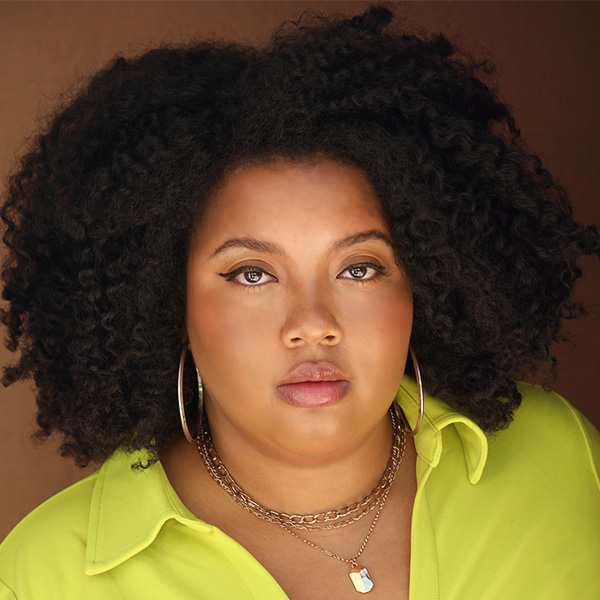
Adia Evans *
Soprano
-
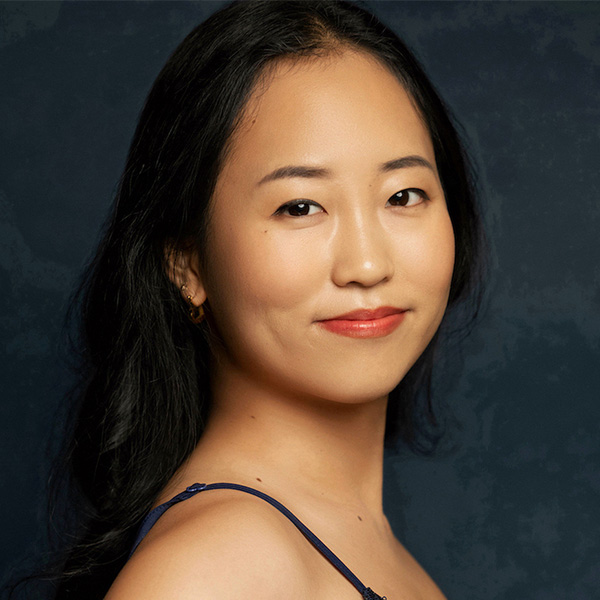
Gemma Nha *
Soprano
-
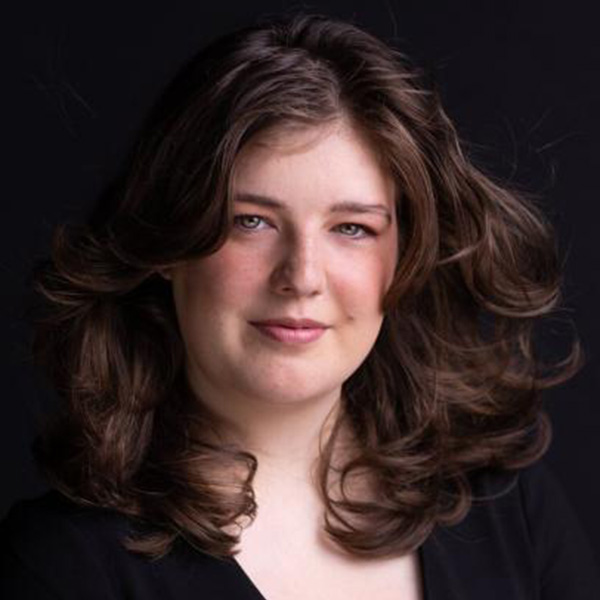
Emily Richter *
Soprano
-
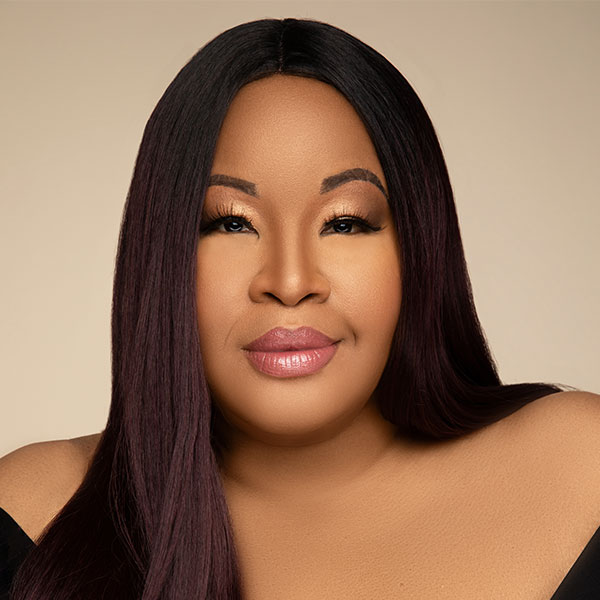
Karen Slack
Soprano
-
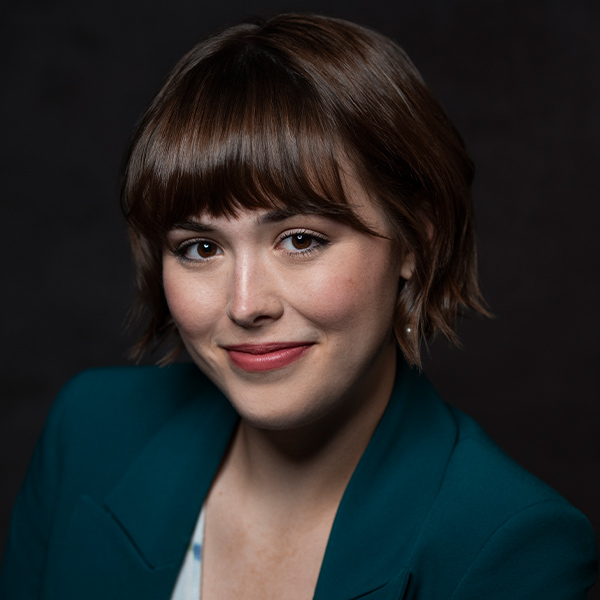
Lucy Baker *
Mezzo-soprano
-
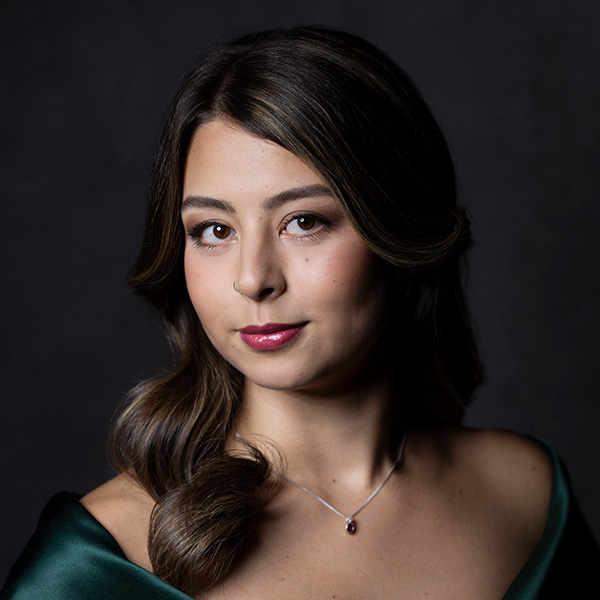
Sophia Maekawa *
Mezzo-soprano
-

Daniel Luis Espinal *
Tenor
-
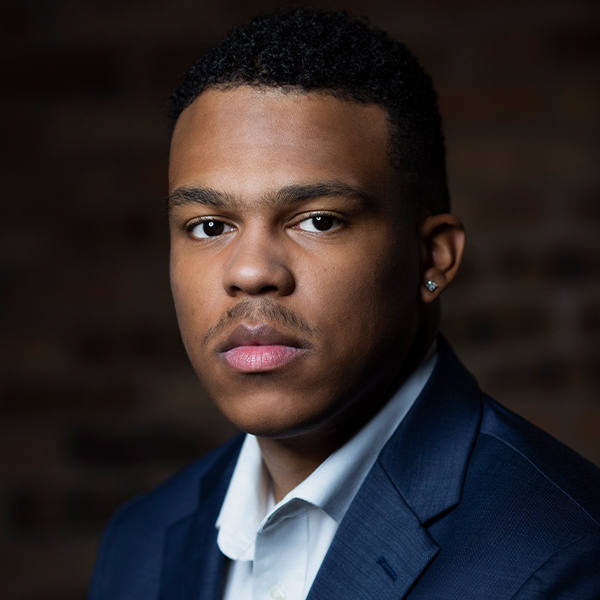
Travon D. Walker *
Tenor
-

Sankara Harouna *
Baritone
-

Ian Rucker *
Baritone
-
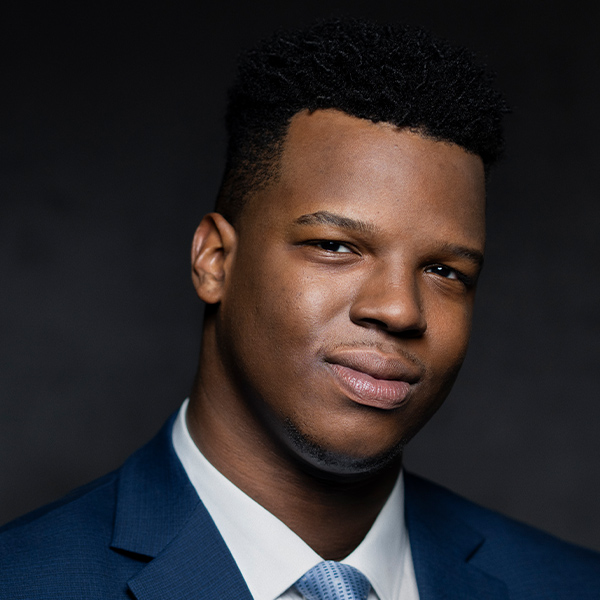
Christopher Humbert, Jr. *
Bass-baritone
-
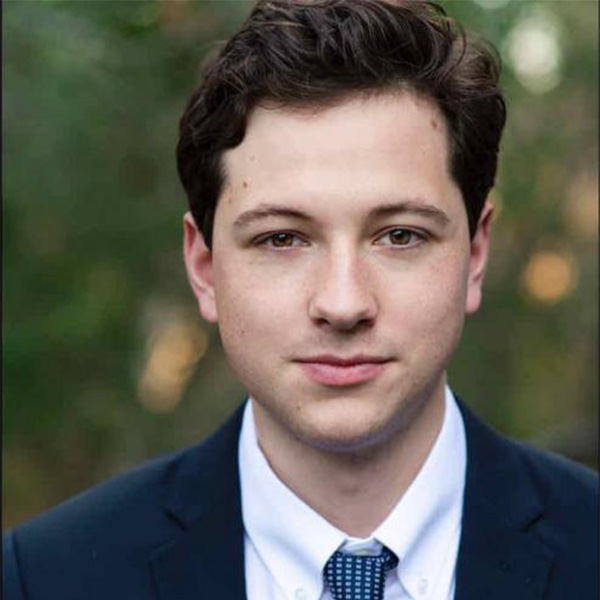
Finn Sagal *
Bass-baritone
-

Michael Banwarth *
Pianist
-
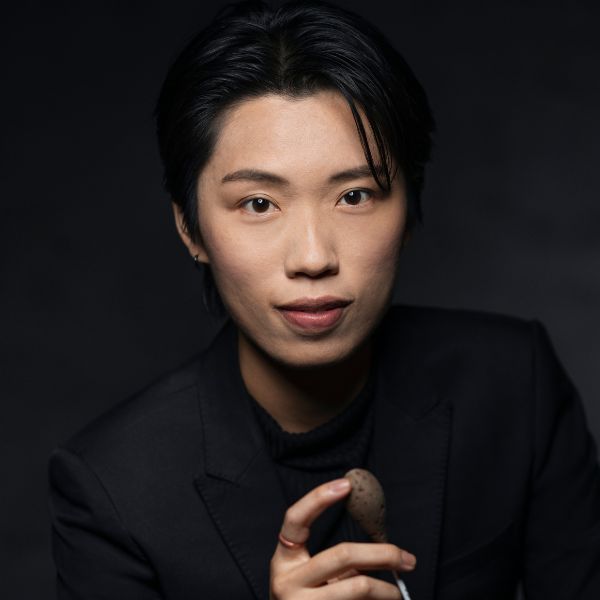
Chi-Yuan Lin *
Conductor
-
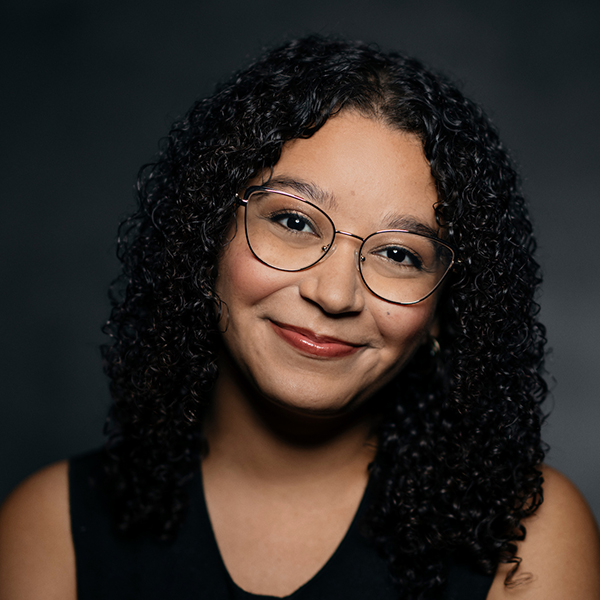
Marinette Gomez *
Stage Director
-

Gemma DeCetra *
Stage Manager
-

Enrique Mazzola
Conductor
* Ryan Opera Center Ensemble
Program notes
Fidelio
By Ludwig van Beethoven
Fidelio tickets
Selection: Overture
Opera lovers will remain forever disappointed that the career of Ludwig van Beethoven (1770-1827) included only one opera. In the late 1700s, German opera had finally begun to develop an identity with the “Singspiel,” a mix of song and spoken dialogue, exemplified by Mozart’s Die Entführung aus dem Serail (The Abduction from the Seraglio) and Die Zauberflöte (The Magic Flute). Then came the giant step forward represented by Beethoven’s Fidelio (world premiere 1805; premiere of finalized version, 1814).
The composer’s great achievement in this work was to make a momentous transition within its two acts: He let the light, “Singspiel-like” comic element in Act One give way to the large-scale, stupendously dramatic music of Act Two — in effect, signaling the dawn of the Romantic era in opera. For Beethoven, creating the work was a painful struggle. On his deathbed, he handed a manuscript of Fidelio to a friend with these words: "Of all my children, this is the one that cost me the worst birth-pangs and brought me the most sorrow; and for that reason it is the one most dear to me.”
The plot centers on Leonore, one of opera’s most courageous heroines. Having disguised herself as a young man (“Fidelio”), she is hired as assistant to the jailer of a prison where she believes her husband has been unjustly incarcerated. She successfully rescues him at the climax of this deeply stirring drama. Of course, it demanded an overture to match, but Beethoven’s “Leonore Overture No. 1” left him dissatisfied. He subsequently created No. 2, then No. 3, before completing his final effort — known simply as the “Fidelio Overture” — in 1814.
Unlike the previous three overtures, this one includes none of the opera’s principal themes. A good deal shorter than its predecessors, it’s also less monumental in character and structure. It boasts its own unique excitement, however, especially in its final pages. The opening presents Beethoven’s initial voicing of two brief motives that will be central to the overture’s remaining six minutes: a thrillingly vigorous four-bar passage marked allegro, immediately contrasted with the stately adagio statement by the horns.
Rigoletto
By Giuseppe Verdi
Rigoletto tickets
Selections:
- “La donna è mobile”
- “Un dì, se ben rammentomi…Bella figlia dell’amore”
With the 1851 premiere of Rigoletto, Giuseppe Verdi (1813-1901) entered the most productive period of his long career. This work was the first masterpiece of a decade that would see one memorable opera after another. Verdi and librettist Francesco Maria Piave found a powerful dramatic source for Rigoletto in a play of 1832, Victor Hugo’s Le roi s’amuse (The King Amuses Himself). Highlighting Verdi’s memorable score are some of opera’s most captivating and justly celebrated melodies.
The Duke of Mantua’s court jester, Rigoletto, is loathed by the palace’s courtiers for his stingingly barbed tongue. Concealing his true identity, the Duke woos Gilda, Rigoletto’s daughter, who shortly thereafter is secretly abducted by the courtiers and brought to the palace. The licentious Duke seduces and then abandons her, which leaves Rigoletto desperate for revenge. Sparafucile, an assassin hired by Rigoletto, lures the Duke to an inn outside Mantua. Rigoletto brings Gilda there, and they observe the Duke through the window. He blithely sings of women’s infidelity in the musically buoyant, infectiously tuneful aria, “La donna è mobile” (“Woman is fickle”). Moments later, he's entranced by Sparafucile’s pretty sister, Maddalena, as Gilda brokenheartedly weeps and her father mutters that her tears are useless. Verdi reveals the four characters’ feelings in the most celebrated of all operatic quartets. It’s launched by the Duke with an intoxicatingly elegant melody, in which he hails Maddalena as the “bella figlia dell’amore” (“beautiful daughter of love”).
The Listeners
By Missy Mazzoli & Royce Vavrek
The Listeners Tickets
Selection: “My daughter tells me I’m selfish”
The Norwegian National Opera premiered The Listeners during the 2022 Ultima Oslo Contemporary Music Festival. A Grammy nominee four years previously, Missy Mazzoli, the work's composer, has earned exceptional critical and public acclaim internationally for operas, orchestral works, and chamber music. She has triumphed in several collaborations with Royce Vavrek, a Canadian writer who has become one of the most successful librettists of his generation. Prior to The Listeners, they created three operas together: Song from the Uproar: The Lives and Deaths of Isabelle Eberhardt (2012), Breaking the Waves (2016), and Proving Up (2018). The duo’s latest work together, Lincoln in the Bardo, has been commissioned by the Metropolitan Opera and will receive its premiere in 2026.
Vavrek developed his libretto for The Listeners from an original story by the Canadian author and playwright Jordan Tannahill. The opera focuses in large part on Claire, a wife, mother, and high-school teacher in the American Southwest. Driving Claire to the brink of insanity is a constant, low-frequency, hum-like noise, also heard by Kyle, one of her students. Like her, he’s desperate to make it stop, crying out at one point, “How do you murder a sound?” Kyle brings Claire to a “community action group coping with noise pollution,” which rapidly begins to resemble a cult. Claire feels increasingly committed to the group and to Howard, its charismatic leader. In a soaring aria, she explains that she was previously entirely practical and selfless, especially when fulfilling her seemingly constant obligations to her teenaged daughter. Now, however, she feels newly awakened to her own potential for what she can achieve on her own in the future.
Blue
By Jeanine Tesori & Tazewell Thompson
Blue Tickets
Selection: “You’re not getting off that easy”
Following its Glimmerglass Festival world premiere, Blue was named by the New York Times in its “Best in Classical Music” list for 2019. The work was created by two uniquely gifted artists, composer Jeanine Tesori and librettist Tazewell Thompson. In addition to scores for five Broadway musicals (among them Thoroughly Modern Millie, Fun Home, and Kimberly Akimbo), Tesori has also composed the score for another acclaimed opera, Grounded (2023, Washington National Opera world premiere), which will open the Metropolitan Opera’s 2024/25 season. Former artistic director of the Westport Country Playhouse in Westport, Connecticut and Syracuse Stage in New York, Thompson has more than 150 directing credits — including 30 world and American premieres — in major opera houses and theaters across this country, as well as in France, Spain, Italy, Africa, Japan, and Canada.
Blue presents an unnamed Black family — Father, Mother, teenaged Son — in Harlem, and the parents’ despair after their son is shot to death by another officer. The opera’s first act concludes with a musically and textually riveting confrontation between Father and Son, after the latter’s latest arrest. The father admonishes the son that, rather than protesting, he should simply enjoy being at home, seeing his friends, and pursuing his interest in poetry, music, and art. The defiant son retorts that “Black people cannot sit still,” and that protesting the assaults and murders of Black men and boys is essential.
La Bohème
By Giacomo Puccini
La Bohème tickets
Selections:
- “Quando m’en vo”
- “In un coupé?...O Mimì, tu più non torni”
The score of Giacomo Puccini’s fourth opera, La Bohème (1896), lasts only one and three-quarter hours, with not one wasted note. That’s entirely typical of Puccini (1858-1924), who was first and foremost a man of the theater, uninterested in vocalism for its own sake. On the other hand, he was certainly capable of sublime lyricism whenever a dramatic situation called for it, as is frequently the case in Bohème.
Based on Parisian writer Henry Murger’s stories collectively entitled Scènes de la vie de Bohème, the opera unfolds in the Paris of 1830, where Mimì, a seamstress, and Rodolfo, an impoverished poet, fall in love on Christmas Eve. At a café, he fervently introduces her to his friends. Among them is a painter, Marcello, who is stunned by the sudden appearance of Musetta, his former lover. She attempts to win him back by singing an intoxicating waltz, “Quando m’en vo” (“When I go walking”). Those two reunite, but a few weeks later they part again. Mimì and Rodolfo eventually part as well. The opera’s last act opens with banter between Rodolfo and Marcello, who are attempting to work, but each man’s thoughts continually return to the lover who left him. This conversation develops into a touchingly soulful duet, beginning with Rodolfo singing “O Mimì, tu più non torni” (“Oh Mimì, you’ll never return”).
Lyric Unlimited's Artist in Residence, Karen Slack
Learn more about Lyric Unlimited's Artist-in-Residence
Selection: “Lyric for True Love”
By Undine Smith Moore
Along with Florence Price, Undine Smith Moore (1904-1989) is acknowledged today as one of the greatest pioneers among America’s Black female composers. The Virginia native showed great musical promise early in life, training initially as a pianist. She eventually earned impeccable academic credentials, studying at Fisk University, Juilliard, and Columbia University. During her distinguished career, Moore gained enormous respect nationwide not only for her compositions, but also for her achievements as a faculty member of Virginia State College (now Virginia State University) and Virginia Union University. She received prestigious honors from Fisk, Indiana University, the National Association of Negro Musicians, and the state of Virginia.
Among Smith Moore’s compositions are extensive choral works, including her tribute to the memory of Martin Luther King, Jr.: the 1981 oratorio Scenes from the Life of a Martyr, nominated for a Pulitzer Prize and first performed at Carnegie Hall. Smith Moore also composed instrumental music, as well as more than twenty pieces for solo voice and accompaniment. On the recital stage, many gifted American singers regularly program Smith Moore’s songs. Perhaps the most treasurable of those pieces is her glorious setting of a poem by Florence Hynes Willette, “Lyric for True Love,” requiring the ultimate in tonal radiance and interpretive sincerity.
Selection: “Blue Skies”
By Irving Berlin
Jerome Kern, one of America’s most celebrated musical-theater composers in the first half of the twentieth century, famously declared, “Irving Berlin has no place in American music — he is American music.” Born in Russia, Berlin (1888-1989) had already emigrated with his family to New York by the age of five. Possessing comparatively little formal education, he was never able to read music but taught himself to play the piano. Already writing songs at nineteen, he moved gradually up the ladder of popular music before hitting the jackpot with the colossal success of “Alexander’s Ragtime Band” (1911). Seventeen years later Berlin would write “God Bless America,” one of seemingly innumerable other Berlin songs that have become part of this country’s musical fabric. Annie, Get Your Gun was by far the most successful of the four Broadway shows Berlin wrote between 1946 and 1962.
The first Berlin song heard in a film was “Blue Skies,” written with immeasurable joy in 1926 after the birth of Berlin’s first daughter. The following year, Al Jolson sang it memorably in Hollywood’s first “talkie,” The Jazz Singer. For nearly four decades Berlin would enjoy one success after another in Hollywood, including an Academy Award for “White Christmas” in 1942.
Selection: “My Kind of Town”
By Jimmy Van Heusen & Sammy Cahn
Jimmy Van Heusen (1913-1990) had already achieved prominence in the realm of popular song by 1940, when he began his career in Hollywood. Over the years he would be honored with 14 Academy Award nominations, earning the statuette four times: for “Swinging on a Star,” “All the Way,” and two songs that attained even greater popularity, “High Hopes” and “Call Me Irresponsible.”
Sharing the Oscar for all but the first of those songs was one of Van Heusen’s most frequent collaborators, lyricist Sammy Cahn (1913-1993), whose successes in film earned an astonishing 31 Academy Award nominations. (He won once without Van Heusen — for “Three Coins in the Fountain,” written with Jule Styne.) Cahn and Van Heusen, who both worked extensively for television, created only one Broadway show together, the unsuccessful musical Walking Happy (1966).
Of the Van Heusen/Cahn songs that eventually became part of the American Songbook, many were first heard in films made from the mid-1950s to the late 1960s. Among them was one of the most memorable of all musical tributes to Chicago: the buoyant “My Kind of Town,” introduced in inimitable, irresistible fashion by Frank Sinatra in Robin and the Seven Hoods (1964).
The Marriage of Figaro
By Wolfgang Amadeus Mozart
The Marriage of Figaro tickets
Selections:
- Overture
- “Esci, ormai, garzon malnato” (Act Two finale)
Many critics have proclaimed Le nozze di Figaro (The Marriage of Figaro) the perfect opera, and with good reason. Premiered in 1786, it shows the genius of Wolfgang Amadeus Mozart (1756-1791) at its absolute zenith. By this time, though only 30 years old, Mozart had become a uniquely responsive and inventive musical dramatist. In Lorenzo Da Ponte (1749-1838) he found a brilliant librettist whose text was more than worthy of its source, Beaumarchais’s celebrated play of the same name. Although Mozart and Da Ponte labeled this work — the first of their three operatic collaborations — as a “commedia per musica,” the comedy in Figaro isn’t about belly laughs; rather, it arises directly out of the situation and unerringly reveals the humanity of every character.
Although the work’s overture doesn’t include any themes heard later in the opera itself, it memorably sets the stage for an exhilarating experience in the opera house. The music requires tremendous flexibility, energy, and rhythmic precision from every member of the orchestra.
For Figaro’s second act, Mozart and Da Ponte created a magnificent finale in which the individual episodes connect seamlessly, one into the next. Taking place in Countess Almaviva’s boudoir, it begins with the Count suspecting that his page Cherubino has been seducing his wife and is hiding in her closet. Demanding that Cherubino emerge, the Count is astonished — as is the Countess — when the closet door opens to reveal the Countess’s resourceful maid, Susanna. The complications continue with the appearance of the Count’s valet, Figaro, soon followed by four other characters: the spluttering gardener, Antonio; the busybody music master, Don Basilio; and two people who feel Figaro has seriously wronged them — old Dr. Bartolo and his former housekeeper, Marcellina. What a surprise it is when, later in the opera, we learn that those two are actually Figaro’s parents!
Program notes by Roger Pines
Roger Pines writes regularly for Opera magazine (U.K.), opera-company programs throughout America, and major recording companies. He has been a faculty member at Northwestern University’s Bienen School of Music since 2019.
Your donation makes the magic possible
Your contribution inspires artists and audiences alike. With your generous support, Lyric is leading the advancement of opera in America.
Sunday in the Park with Lyric is generously supported through an endowment by an Anonymous Foundation with additional support from the Rhoda & Henry Frank Family Foundation, the Chicago Department of Cultural Affairs & Special Events, The Margo and Mike Oberman Charitable Trust, Sipi Metals Corporation, The Recording Industry’s Music Performance Trust Fund, and the Film Funds Trust Funds.
Maestro Enrique Mazzola is generously sponsored by Alice & John Butler, H. Gael Neeson, Sylvia Neil & Daniel Fischel, and the Robert and Penelope Steiner Family Foundation as members of the Enrique Circle.